Employee Wellbeing


“Businesses are already taking the first steps towards underpinning support for their staff’s wellbeing. ”

Sophie Moran, KeepWell Programme Manager, Ibec

Page 06
Terri O’Brien, Corporate & Programmes Manager, Volunteer Ireland Page 08
Q4 2022 | A promotional supplement distributed on behalf of Mediaplanet, which takes sole responsibility for its content
“There are a few things that companies must recognise when starting their volunteering journey.”
www.businessnews.ie
Employers can get ahead by supporting employee financial wellbeing
Employers have made huge strides in considering the wellbeing of their colleagues over the last decade. Mental health, which was taboo until recently, is now routinely included in strategies.
BITCI’s landmark research highlights the importance of businesses thinking beyond profit — when they include societal value and impact, sustainability is placed at the core of decisions.
Financial wellbeing and inclusivity
 Sustainability
Sustainability
During the Covid-19 pandemic, wellbeing programmes became a cornerstone of employee engagement. Now, as the focus shifts to the cost of living crisis, employers should prioritise financial wellbeing — the ability to manage finances without stress and to meet commitments and needs comfortably, and with enough financial resilience to respond to short-term shocks. This is critical to employee wellbeing.
Stable employment and regular pay are basic components of financial wellbeing, but often, they are not enough. In-work poverty is increasingly prevalent. People who fall into this tend to be diverse jobseekers, part-time employed, are often lone parents or new to Ireland — and are mainly women.
Financial and mental wellbeing assistance
As living costs continue to rise, anxiety levels are also increasing. Financial worries about affording essential household expenses and making ends meet will negatively impact productivity, performance and, ultimately, mental wellbeing. Socially responsible employers recognise the importance of financial wellbeing, and many are already taking active steps, such as:
• Ensure all colleagues (including sub-contracted) are paid at least a living wage. In Ireland, this is currently €13.85 per hour.
• Increase financial literacy by signposting financial
advice and guidance — practical tips on managing money, planning for key life events or claiming tax rebates.
• Support colleagues to upskill and progress into higher-paid roles. If promotion opportunities are scarce, equip colleagues for higher roles elsewhere.
• Review benefits packages to include finance-friendly initiatives – flexibility to choose the frequency of wage payments, provide Employee Assistance Programmes or ‘Bike to Work’ schemes to reduce out-of-pocket expenses.
• Implement flexible working to support colleagues to maximise disposable income — balancing hours available to work with caring responsibilities, or choice of location to reduce commuting costs.
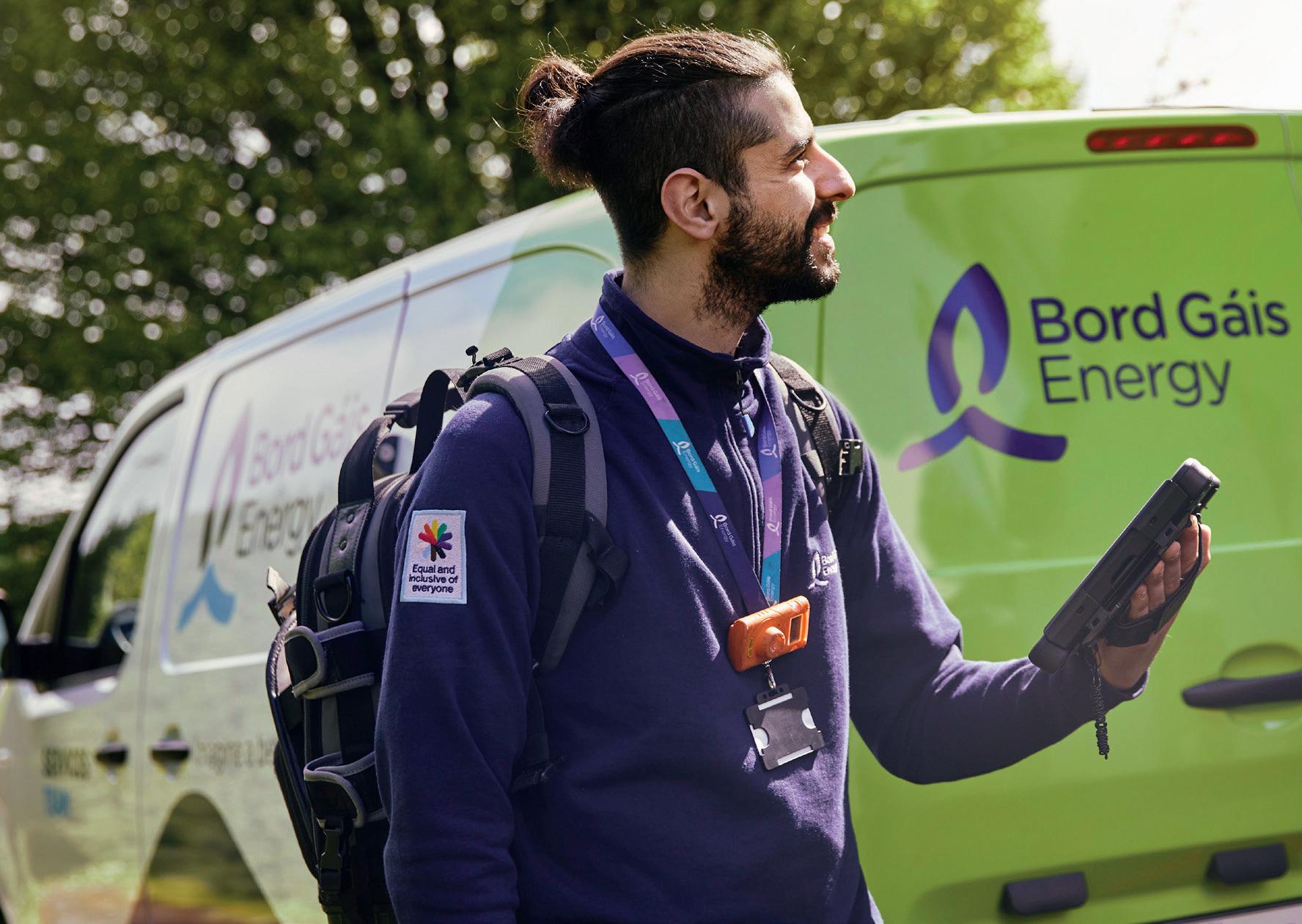
Each of these actions can be collected into a financial wellbeing policy that sets out a commitment to supporting colleagues.
Growing responsibility for businesses
Leading employers are stepping up to support colleague financial wellbeing. In doing so, they can help reduce stress and improve overall wellbeing. This is the right thing to do from a moral sense, but it will also yield dividends in employee engagement. And for most businesses, engaged colleagues are the foundation stone for success.
Bring
whole self to work
At Bord Gáis Energy, we encourage every colleague to bring their whole self to work. We’re committed to nurturing and developing an inclusive culture of equal opportunities, where difference is valued and all colleagues can thrive.
02 READ MORE AT BUSINESSNEWS.IE AN INDEPENDENT SUPPLEMENT FROM MEDIAPLANET WHO TAKE SOLE RESPONSIBILITY FOR ITS CONTENT MEDIAPLANET
your
Senior Project Manager: Cian
cian.raftery@mediaplanet.com Business Development Manager:
Director:
Head
| Head of Print & Design: Thomas Kent Designer: Aimee Rayment Content Editor: Angelica
O’Toole | Head of Digital Operations:
Paid Media Manager:
Social & Web Editor: Henry Phillips Digital Assistant: Carolina Galbraith Duarte All images supplied by Gettyimages, unless otherwise specified @BusinessnewsIE Contact information:
or
0737 @MediaplanetUK Please recycle
To find out more visit: bordgaisenergy.ie
Raftery
Lucy Harris Managing
Alex Williams
of Ireland: Ross Bannatyne
Hackett
Harvey O’Donnell
Jonni Asfaha
uk.info@mediaplanet.com
+44 (0) 203 642
BITCI is a not-for-profit organisation committed to promoting responsible and sustainable business practices. We look at sustainability in its widest sense, from economic performance to environmental footprint and social impact to good governance.
Linda O’Sullivan Senior
Adviser, Business in the Community Ireland
WRITTEN BY Meredith Jones Russell
Navigating new work culture and the case for wellbeing
“A lot of organisations in the past ticked the ‘wellbeing box’ with pop-up services, guest speakers or showcases. But real cultural change is needed — where people feel safe to have conversations about wellbeing and health and where managers design organisational structure to really support the wellbeing of their colleagues.”
Proactive approach
To ensure wellbeing is improved in a post-Covid-19 landscape, Machesney recommends employers keep a close eye on employee feedback. She says: “For example, if you have high absenteeism rates, we know mental health and musculoskeletal issues are the top two explanations. You can get ahead of that by providing mental or physical health support if you’re proactively identifying the issue and targeting what your employees need. Companies must take a step back, look at the data, listen to the people on the ground and work out what they need to do and how.”
Companies that appreciate the benefit of committing to staff wellbeing will profit in the long run.

Investment challenge
Organisations are facing a greater demand for people-centred policies and flexibility, as working practices are irreversibly changed by the pandemic and members of Generation Z and millennials start to make up the greater part of the workforce.
Human connection
“During Covid-19, we jumped into digital — weeks and months of advancements in technology turned into days and hours because we needed it,” says Stacey Machesney, Head of Health and Wellbeing at Irish Life.
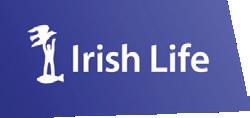

“It was a really positive step and broke down some of the inequalities to access. But as we come out of the pandemic, we’re definitely feeling people are fatigued and don’t want to be spending all their time online. Pre-Covid-19, we talked about mental and physical wellbeing, but now it’s mental, physical and social. We place new value on the importance of a human connection.”
With employees reporting struggles with isolation and missing out on the
social elements of office life, there’s an opportunity to bring workers back in the office, but it remains a question of balance. “Employers need to work out what work should be done at home and what needs to be done in the office,” Machesney suggests. “Innovation usually happens when you’re workshopping, brainstorming and bouncing ideas off each other.”
Genuine transition
The Covid-19 pandemic undoubtedly shifted employee expectations for the better, Machesney says. “Mental health, poor sleep and financial wellbeing have always been issues, and pre-pandemic workloads were already heavy,” she says. “We weren’t going to be able to carry on like that. The pandemic changed the way we work in a positive way.”
David Collings, Professor of Human Resource Management at Dublin City University, says organisations that previously paid lip service to address employee wellbeing must now take it seriously and make what he terms ‘event-based wellbeing’ a thing of the past.
With a recession, investment in wellbeing could face cuts. Professor Collings explains, “Research has shown, senior leaders are concerned about their ability to focus on wellbeing in the strong headwinds we’re facing. But maintaining the momentum we’ve gained is important — even when the pressure is on budgets.”
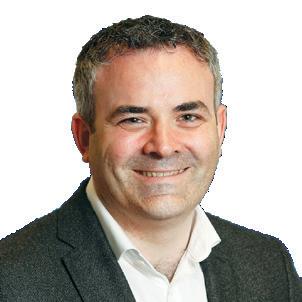
He adds that companies that appreciate the benefit of committing to staff wellbeing will profit in the long run. “A lot of organisations continue to see investment in things like wellbeing as a cost, as opposed to understanding the cost of doing nothing — whether that’s long-term absence, attrition or the significant human cost. There is such value created by ensuring health and wellbeing for employees.”
“We’re not suggesting it’s easy. It’s a journey for most organisations, and it could feel overwhelming. But with a steady approach, by looking at the data, speaking to the right experts and being cost-efficient, we have the chance to make a real impact on the wellbeing of our workforces.”
MEDIAPLANET READ MORE AT BUSINESSNEWS.IE 03 AN INDEPENDENT SUPPLEMENT FROM MEDIAPLANET WHO TAKE SOLE RESPONSIBILITY FOR ITS CONTENT
With the importance of wellbeing coming into sharp focus, how can employers best place themselves to hire and retain people while ensuring physical and mental health and a good work-life balance?
Find out more at irishlife.ie/ wellbeing/
Paid for by
Life
Stacey Machesney Head of Health and Wellbeing, Irish Life
Irish
David Collings Professor of Human Resource Management,
DCU Business School
Four simple steps to help you regain control of your mental wellbeing
The human species is incredibly adaptive. We can learn to adjust to most circumstances, challenges and crises. Even so, it can take a toll on our mental health.
When life feels chaotic, overwhelming and out of our control, it can be easy to get stuck in a cycle of stress and worry. Over the last few years, the world might have felt like an unstable and uncertain place with changes and challenges we’ve never experienced before. Prioritising our mental health is so important, and there are simple ways we can mind our wellbeing.
Accept that we have the power to make our own world a better place to be, no matter how restricted.
Exploring the four A’s If we look at the four A’s mental health approach, we regain some control and can be more at peace with what’s happening around us. We can tune into how we are feeling and improve our mood and overall mental wellbeing. They are:
1. Awareness: When we’re overwhelmed or things around us feel like they’re spiralling, we might be feeling scared, angry, frustrated or confused. These are all natural responses to what’s happening around us. Awareness is taking time to tune in to our thoughts, feelings and actions. Pay attention to your breathing and how you feel in your mind and body.
2. Acknowledge: Acknowledging what comes up for us is an opportunity to express and validate how we feel and what we are thinking. We might have a good cry, write, talk to someone, listen to podcasts and allow ourselves to say, ‘yes, this is really hard.’
3. Acceptable: Acceptance is key. A lot is out of our control. It’s okay to have days when we struggle to get out of bed and don’t want to face the world. Accept that we have the power to make our own world a better place to be, no matter how restricted. Accept that it’s okay to talk to someone who is trained to help when we need it.
4. Action: Action is about taking what we have learnt and acting on it. This might look like reaching out to someone to create a support bubble, asking for help, meditating or doing nothing if that’s all you’re in the mood for. Always be kind to yourself!
While it does sometimes feel as if we’ll never turn a corner, the day will come. In the meantime, create a space for yourself to feel how you want to feel and to react with self-compassion and purpose.
Mental Health Ireland provides workshops and training in the workplace promoting mental health, wellbeing and recovery and teaches skills on how to protect and improve mental health and wellbeing.
For information, visit mentalhealthireland.ie/training

04 READ MORE AT BUSINESSNEWS.IE AN INDEPENDENT SUPPLEMENT FROM MEDIAPLANET WHO TAKE SOLE RESPONSIBILITY FOR ITS CONTENT MEDIAPLANET
Carmen Bryce Communications and Fundraising Manager, Mental Health Ireland
Setting employee wellbeing as a top priority
Adjusting to needs
The company recognises that different people have different needs depending on their commitments, responsibilities, or physical and mental health. With this in mind, the firm launched another innovative resource to help team members thrive in their workplace, the ‘Inclusion Passport’ — a digital tool that details and records specific needs and follows each passport holder if they move between departments, so they only have these conversations once.
Other welfare benefits include referral to professional support, a free 24/7 employee assistance programme, on-site health assessments and an in-house clinical psychologist who provides a 1:1 wellness clinic. In addition, mental e-learning modules are available, and, by February, there will be 40 employees across the business trained as mental health champions with a mental health first aid qualification. Networks cover areas of parenting and caregivers, LGBTQ and financial wellbeing. A faith and reflection room offers the opportunity for a peaceful moment, and our people also have eight hours a year they can dedicate to volunteering in communities.
We listen to our people
Wellbeing is a crucial pillar within overall talent experience, ambition and inclusion strategies. It should be a core of a company and underpinned by shared values of fostering inclusion and caring for one another.
It’s okay to not be okay” — Deloitte’s World Mental Health Day message. “We’re passionate about the ability of our people to be their ‘whole’ selves at work, and we recognise that while people can readily share the positives from their home or personal life, it can be much harder to acknowledge when things are not so easy,” says Aisléan Nicholson, mental health sponsoring Partner at Deloitte Ireland.

Work-life balance
A range of initiatives and policies have been implemented and rolled out at the company to enable employee wellbeing. They cover mental, physical and spiritual health as the organisation acknowledges the importance of a healthy worklife balance. Tools, resources, policies, networks and groups are adding support to help people at key life moments.
Wellbeing and development specialist Rebecca Marshall highlights the value of having such initiatives and innovations not only
to support their workforce but also to improve talent retention and attract new talent. She explains how flexible and hybrid working is important, as well as individuals having access to mentors and professional support if required.


Leave packages
A comprehensive leave package is offered to support our people at all stages of their life — from menopause, miscarriage and fertility treatment to fostering and surrogacy, as well as a wide range of benefits such as free eye tests, flu jabs, fitness and craft and painting classes.
Specific initiatives within the organisation include Deloitte Works, launched in September 2021, which is the firm’s flexible and hybrid working strategy that empowers and trusts people to choose how, where and when to do their best work.

“Our wellbeing initiatives support our team members in line with shared values of taking care of each other and fostering inclusion,” Marshall says.
The wellbeing initiatives are regularly reviewed and every quarter, Deloitte Ireland reaches out to the teams for feedback on the various initiatives. Data from October, for example, showed that 82% of our people felt their choices around flexibility are respected, and nearly 60% were comfortable discussing their mental health. Leaders receive training to conduct difficult conversations with staff, identify challenges at an early stage and direct people to professional services as required.
Covid-19 challenge
Since Covid-19, we have significantly developed our wellbeing strategy, empowering people to make choices and providing access to resources that support them. “It is a huge attraction and also important in retaining our people,” Marshall says.
Nicholson adds: “The resources we are making available and the wider discussion of health and wellbeing matters are so important; they give people the courage to talk about their challenges. In turn, this allows their colleagues and the wider organisation to support each other, leading to more positive outcomes for everyone.”
MEDIAPLANET READ MORE AT BUSINESSNEWS.IE 05 AN INDEPENDENT SUPPLEMENT FROM MEDIAPLANET WHO TAKE SOLE RESPONSIBILITY FOR ITS CONTENT
Find out more at deloitte.com
Rebecca Marshall Wellbeing and Development Specialist, Deloitte Ireland
“ Paid for by Deloitte
Aisléan Nicholson Tax and Mental Health Partner, Deloitte Ireland
WRITTEN BY Mark Nicholls Image provided by Deloitte
Clear objectives that can boost workforce resilience and wellbeing
uncertainty
The past two years have been fraught with unprecedented levels of uncertainty as the business community grappled with the challenges posed by Covid-19. While we have been largely successful in overcoming the pandemic, the coming years will once again prove extremely challenging for the country as economic headwinds continue to change.
The adverse impact that this prolonged period of disruption and uncertainty has had on the general psyche of the global workforce is unquestionable. Research from Gallup (2022) highlights that only 33% of employees are thriving in their overall wellbeing, while only 21% are engaged at work. They note that while engagement levels had been rising pre-pandemic, the impact of several years of disruption and distress had stalled this positive progress.
Positive steps
Businesses are already taking the first steps towards underpinning support for their staff’s wellbeing. Positively, Ibec’s latest wellbeing barometer research (2022) found that businesses are working towards a more embedded approach to workplace wellbeing, with 42% of organisations agreeing that wellbeing is embedded in the core values and culture of their organisations.

Businesses are also putting clear objectives behind their wellbeing strategies, the top five most important objectives being:
• Improving employee engagement (84%)
• Reducing employee stress (82%)
• Improving work-life balance (81%)
• Improving the health of the workforce (81%)
• Improving employee retention (80%)
Talent retention is a top priority Coupled with this is a jobs market underpinned by an ever-increasing competition for talent. Ibec’s HR Update research (2022) shows that talent retention is the top priority for the majority of companies in Ireland. Organisations that embed a culture of wellbeing and support the mental and physical wellness of their workforce are the same ones that are more effective at ensuring the attraction and retention of employees. As such, wellbeing programmes are in increasing demand as they reflect corporate support for individual mental wellbeing and acknowledgement of the need for an appropriate level of work-life balance.
Benchmarking is key
It’s important to ensure that wellbeing interventions, along with other social initiatives including diversity and inclusion goals, are measured and tracked. Ibec is supporting companies to benchmark the progress of their wellbeing strategies through our KeepWell programme, allowing wellbeing journeys to be tracked, continuously improved upon and ultimately embedded within organisations.
Moran KeepWell Programme Manager, Ibec

06 READ MORE AT BUSINESSNEWS.IE AN INDEPENDENT SUPPLEMENT FROM MEDIAPLANET WHO TAKE SOLE RESPONSIBILITY FOR ITS CONTENT MEDIAPLANET
Sophie
As 2023 approaches and
remains, a renewed focus on employee wellbeing is needed to protect the resilience of our people.
For more information, visit thekeep wellmark.ie
Nurturing and developing an inclusive culture of equal opportunities
Having a robust Diversity, Equality and Inclusion (DE&I) strategy — including active community networks and better, braver communications — is a boost to employee wellbeing.
Motivating
Organisations that put Diversity, Equality and Inclusion (DE&I) at the centre of everything they do will have happier staff, happier customers and a better business, says Angela Hoey, Director of HR at energy and services company, Bord Gáis Energy.

colleagues for growth
“If you create an inclusive culture of equal opportunities where difference is valued, colleagues will feel able to bring their whole selves to work,” Hoey says. “We want to help colleagues expand their knowledge, grow in their roles and truly feel as though they belong here. And we want to do that because it’s the right thing to do — not because it looks good.” DE&I has to come from the heart, she says, and not be bolted on as an afterthought.
An important way for any organisation to foster an environment of inclusion is to develop active networks.
Bord Gáis Energy has four of these: REACH, which is dedicated to strengthening the inclusion of all ethnic minorities in the workplace; Bród, an LGBTQI+ network; The Women’s Network which champions gender equality; and the Neurodiversity Network which aims to make the workplace inclusive for neurodivergent people, such as those living with autism, ADHD, dyslexia and dyspraxia.
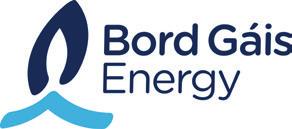
Networks should set bold objectives and targets
Networks require executive team sponsorship and support. However, Hoey stresses: they should be driven by individuals from across the organisation who are willing to commit their time and energy, rather than management. A ‘top-down’ approach doesn’t work.
Plus, each network must set bold objectives every year. For example, in 2022, the challenge from the the company’s Women’s Network was to increase female participation in middle management positions and above. If targets are not met, network representatives should feel able to take the leadership team to task. “In a psychologically safe workplace, colleagues will feel able to challenge the leadership,” says Hoey. “Equally, leadership must be happy to listen and help improve the situation.”
A diversity and inclusion engagement committee — featuring a breadth of representation from across the
organisation — also has a major role to play. At Hoey’s organisation, the D&I engagement committee’s key activity is to run workshops that teach colleagues about the importance of building and maintaining an inclusive environment in the workplace and society. “Plus, it consolidates our networks’ overall strategy,” she says. “It generates enthusiasm by asking: ‘What are we doing next in the DE&I space?’ Because no organisation can afford to rest on its laurels.”
In a psychologically safe workplace, colleagues will feel able to challenge the leadership.
Making DE&I second nature
Organisations should embed DE&I into their practices and processes, such as recruitment, marketing and communications and sponsorship initiatives. “Our recruiters are trained to be aware of the importance of DE&I,” says Hoey. “When writing advertisements, we use gender-neutral and inclusive language; we create a gender-balanced interview panel where possible; and when shortlisting candidates, we aim for a 50/50 gender balance.”
The organisation has also committed to being braver with its communications to be more reflective of modern Ireland and has developed an inclusivity logo for all service engineers’ vans and uniforms. They partner with organisations that share their values and approach to DE&I. As long-term sponsor of the Senior GAA Hurling Championship, Bord Gáis Energy used the platform this year to promote the message of inclusion in team sports.
If your organisation is only just setting out on its DE&I journey, the first step is to understand the issues that are important to your staff. “Speak to them and encourage their engagement and involvement in networks and activities,” says Hoey. “Remember that getting DE&I initiatives up and running requires teamwork — and give them time to flourish and become part of the fabric of your organisation.”
MEDIAPLANET READ MORE AT BUSINESSNEWS.IE 07 AN INDEPENDENT SUPPLEMENT FROM MEDIAPLANET WHO TAKE SOLE RESPONSIBILITY FOR ITS CONTENT Find out more at bordgaisenergy.ie
Paid for by Bord Gáis Energy
INTERVIEW WITH Angela Hoey Director of HR, Bord Gáis Energy
WRITTEN BY Tony Greenway
Improving employee wellbeing through meaningful volunteering
Volunteering has quickly become a core component of any company’s employee health and wellbeing programme.
It is no doubt that employee volunteering positively impacts colleagues, companies and charities. It has many benefits around team building, improving connection to the company, building morale and connecting people to communities. There are a few things that companies must recognise when starting their volunteering journey.

Gap in corporate volunteering opportunities
There is a gap in the availability of volunteering opportunities that company teams usually look for (ie. one-off, hands-on style projects).
The key reasons for this gap are: charities are focused on their mission and serving their client group, and corporate volunteering is not on their radar; community groups are stretched thin and do not have the time to think about, develop and manage corporate opportunities; community groups often do not have the staff or experience to engage employee teams in a way that meets the needs of both the group and the volunteer.
Thinking of engaging in employee volunteering?
If you want to engage your employees in a meaningful and impactful volunteer experience, keep the following in mind:
• When contacting charities, let them know you are in ‘information gathering mode,’ are speaking to multiple groups and will be back in touch if you can support their cause.
• Look to support — rather than overwhelm — the group, and concentrate on the charities’ needs and expectations.
• Provide funds to keep your team busy for the day — just as you would if they were participating in any other team-building activity. Think about a supplies budget, along with a financial donation to cover the time it takes to plan and manage your team’s volunteer activity.
• Be flexible with your availability, don’t set a date until it is agreed upon with the community group.
• Once a commitment is made, be sure to follow through. If, for some reason, you have to reschedule, be sure to set another date immediately.
• Remember, ‘volunteering is not a day out’ — it is a commitment to a cause or organisation that deserves to be optimally managed by your team, so your employees can feel proud of what they have achieved.
• For a quality project, assign team leads to oversee the activity and ensure it is planned and executed to a high standard and is something your company can stand over.
08 READ MORE AT BUSINESSNEWS.IE AN INDEPENDENT SUPPLEMENT FROM MEDIAPLANET WHO TAKE SOLE RESPONSIBILITY FOR ITS CONTENT MEDIAPLANET
Terri O’Brien Corporate & Programmes Manager, Volunteer Ireland
Remember, ‘volunteering is not a day out’ — it is a commitment to a cause or organisation that deserves to be optimally managed by your team
Holistic benefits: the new way to go about workforce wellbeing
Through 2020 and 2021, we, at Coca-Cola HBC Ireland and Northern Ireland, experienced increased uptake in the use of our wellbeing services by employees. Most were engaging with the service for the first time, and engagement has continued.

Working with employees
Gainova People & Culture Director, Coca-Cola Hellenic Ireland

The suite of supports we developed are based on feedback from employees. Recently, we ran a weekly health and wellbeing talk series delivered by industry professionals covering suggested topics — financial wellbeing, mental health, nutritional health and more.
We were accredited with the KeepWell Mark in 2021, subsequently winning the ‘Best in Class Leadership’ award which recognised Coca-Cola HBC for consistent communications with employees, a strong rewards and recognition programme and evidence that we focus on upskilling our people in leadership development. Our dedication to investments within and structured approach to developing our people is also an important cornerstone of wellbeing.
Volunteering options

In addition to our confidential Employee Assistance Programme, we have several trained mental health first aiders for employees who prefer to speak with a friendly face in times of need.
Volunteering and out-of-work activities are actively encouraged and supported. Our volunteering policy allows employees to take up to eight hours per annum for team or individual volunteering purposes through our existing
Ways tax experts can help take care of your income
Using a tax expert can be a quick and easy way for taxpayers to claim the tax credits they’re entitled to and apply for possible rebates.
Many taxpayers could be missing out on tax credits that can help reduce their income tax and boost their take-home pay.
Getting a tax expert to review your taxes could help you claim relevant credits and get the most from your earnings, recommends Gerry Scully, an accountant at Irish Tax Rebates.

“What people need to recognise is that you have to maximise what you’re bringing into your house,” Scully says. “It pays to have an expert to check what tax refunds you can claim.”
Reducing income tax with tax credits
A tax credit reduces the amount of income tax owed, meaning taxpayers can take home more earnings per month. “There are over 30 types of

community partnerships such as #YouthEmpowered, FoodCloud and FareShare.
Policies for parents
We recently launched our improved maternity and paternity policies with the aim of facilitating parents to spend more time with their newborn or newly placed child while minimising the impact on career progression and earnings. Our improved maternity policy offers 52 weeks of leave with 26 weeks at 100% pay and 13 weeks at 50% pay. Our enhanced paternity policy offers 6 weeks of leave at 100% pay. The benefits of both policies apply from an employee’s first day at Coca-Cola HBC.
Holistic thinking
In times of financial uncertainty, we must remind ourselves of the benefits offered by the organisations we work for. Too often, people think only of salary, but we believe in a holistic benefits package. To do this, our comprehensive benefits package includes competitive company pension contributions, an enhanced share purchase scheme, a performance bonus, private health insurance options and an employee discounts programme to mention a few.
By working with employees to review and improve our offerings, we continue to support and protect the wellbeing of our people, retain our talent of today and attract the talent of tomorrow.
Paid for by Coca-Cola HBC Find out more at ie.coca-colahellenic.com/en/working-with-us
€500 in October this year. “You can get €1,000 for almost whatever and wherever you want, whereas if your employer gives you €1,000 as a cash bonus, Revenue will tax you up to 52%,” Scully explains. Nowadays, hundreds of places accept vouchers from supermarkets to fashion brands, allowing you to “tailor your voucher to suit your needs,” he adds.
credits out there, and not everyone’s aware of them because they can change regularly,” Scully says.
Some credits, for example, allow taxpayers to get reductions for medical expenses or for financially supporting a relative in Ireland or abroad.
“People may have heard of some of these tax credits but aren’t sure what to do,” Shauna Mackey, marketing manager at Irish Tax Rebates says.

“We sort that all for them. We know what paperwork is required and how to maximise what they’re entitled to.”
Tax-free bonuses
Taxpayers can get more for their money by receiving a voucher as an end-of-year bonus instead of cash. Vouchers are now tax-free up to €1,000, which increased from
Tax relief for working from home
The Working From Home tax relief can help taxpayers manage the rising costs of light and heat. “Previously, you could claim 10% on your lighting and heating bills and 30% on your broadband, but now you can claim 30% on all three bills based on the number of days you worked from home in that year,” Mackey says. As well as the increased tax relief, the “opportunity for employees to work from home is so advantageous as it cuts their commute and commuting expenses — and provides a better work-life balance.”
MEDIAPLANET READ MORE AT BUSINESSNEWS.IE 09 AN INDEPENDENT SUPPLEMENT FROM MEDIAPLANET WHO TAKE SOLE RESPONSIBILITY FOR ITS CONTENT
Scan the QR code to find out more
Gerry Scully Accountant, Irish Tax Rebates
Paid for by Irish Tax Rebates
There are over 30 types of credits out there, and not everyone’s aware of them because they can change regularly.
Shauna Mackey Marketing Manager, Irish Tax Rebates WRITTEN BY Sarah Brown
More companies make employee health and wellbeing a core part of their agenda, whether through assistance programmes or new policies.
Marina
Why the gender pay gap is delaying progress across industries
The gender pay gap can only be addressed by equal representation at every level in organisations, and that opens a window of opportunity for more focused action planning on employee policies and experiences.
During this month, employers in Ireland will be publishing their Gender Pay Gap (GPG) in compliance with the Gender Pay Gap Information Act 2021. The GPG is the difference in the average hourly wage of men and women across a workforce. Outcomes will range from single-digit percentages to more substantial gaps.
Under-representation of women
Organisations with previous experience with GPG reporting will be familiar with the root causes of the variations. These range from structural biases in policy or the challenges of comparing roles of equal value. Ultimately, the gap is driven by the under-representation of women in higher-paid roles.

Under-representation is a more complex challenge to address, and senior roles of influence will have the potential to be particularly vulnerable to gender pay gaps until we can address the talent pipeline imbalance.
The action plan is more important than the gap
details of how the gap will be addressed over time.
The strongest opportunity arising from GPG reporting is the access to data, where organisations will have the metrics to understand where the highest incidences of gender under-representation occur and what is driving gender-related patterns within their organisation.
Correct use of this data will provide the basis for more robust KPIs and opens the conversation to the idea of targets, particularly for more balanced representation at the most senior decision-making levels, in line with the ambitions of advocates such as the 30% Club and Balance for Better Business.
short and long-term ambitions that go beyond the workplace and into early education and alternative talent strategies.
We know from experiences of other countries that driving change to correct under-representation will need more than just aspirational thinking; it needs a cohesive plan focusing on driving real change. Fortunately, the Irish reporting structure requires not just reporting of the gap but
Ideally, we need to focus on short and long-term ambitions that go beyond the workplace and into early education and alternative talent strategies. These include re-training, returner programmes and other workplace talent initiatives.
Taking plans from the HR table to the boardroom
In parallel, the reporting and subsequent action planning require board oversight — which brings the conversation to a new level. Ultimately, GPG reporting takes the diversity representation question from the HR department to the boardroom, where ultimate ownership and support for change must sit.
10 READ MORE AT BUSINESSNEWS.IE AN INDEPENDENT SUPPLEMENT FROM MEDIAPLANET WHO TAKE SOLE RESPONSIBILITY FOR ITS CONTENT MEDIAPLANET
Gillian Harford Country Executive, 30% Club
Scan the QR code to find out more
We need to focus on
Supporting female staff at critical life moments and why it matters
Maternity leave, menopause and undergoing fertility treatment are critical points in the lives of women that can even lead to them falling out of the world of work.
The importance of supporting female employees in the workplace is now being increasingly recognised. Tailored support has benefits in seeing early career women gain a foothold within an organisation or enable established female employees to develop their careers and aspire to leadership roles.
Gender equality
Energia Group is committed to being an organisation that recognises the value of diversity among its staff and where all staff feel included and valued — irrespective, and because, of their uniqueness. They are taking active steps in committing to the UN’s Sustainable Development Goals by providing a safe, healthy and inclusive working environment for employees and encouraging their professional and personal growth.
Sense of belonging
Along with groups aligning with the career and life stages women are at, Amy also underlines their networking value in organising events and activities, hearing from inspirational speakers and nurturing a ‘sense of belonging.’
The groups meet monthly to offer support and enable women to deal with challenges in their private lives. Inclusivity and allyship are important elements in considering the language used around issues such as fertility treatment, menopause and maternity leave.
Safe space
Sponsorship Executive Colleen Rainey, who joined the company on the graduate programme, is involved with the Early Career women’s network. She explains how new joiners are introduced to meetings and invited to speak about their aspirations, as well as hear from guest speakers from the Senior Management team about their career paths and experiences.
Meanwhile, Claire McElroy, Regulation Manager, is active in the Women’s Returners group after coming back to work from maternity leave. She outlines how the group supports female employees going on maternity leave, during that leave and on the return to work. “We provide help and support, so mums feel less nervous about going off on maternity leave while allowing them to still be connected while they are off.”

“It also makes that process of coming back easier — and making sure women are going to be able to reach their full potential when they come back to work,” Claire adds. “I was nervous about returning to work, but this made it a lot less daunting.”
Health policies
Inclusivity and allyship are important elements in considering the language used around issues such as fertility treatment, menopause and maternity leave.
Women in Energy, the Women’s Network within Energia Group has set up groups that support maternity leave, offer opportunities to younger female employees and help those looking to advance their careers.
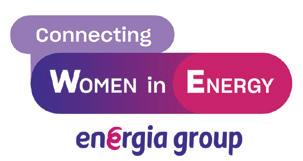
The network covers the Energia and Power NI brands across the island of Ireland and is fully supported by the senior leadership team with Group HR Director Michele Hanley as the network sponsor.
In addition, the participants have had input into drafting company policies that may reshape the workplace for women. The company’s Head of Brand, Amy O’Shaughnessy, says the network has an important part to play in ensuring women feel supported and cared for at key points in their careers.
An information guide has been developed for employees on maternity leave and includes details and tips for managers on how to best liaise with employees going on maternity leave and returning to work. The company was also proud to publish policies that address and support fertility treatment, menopause and flexible working.
“Research shows that women can fall out of a career journey at the point of maternity leave or menopause,” says Amy. “By putting these policies in place, we feel we can enable women to fulfil their potential. It is about educating managers and giving them a toolkit, so they feel able to understand and empathise at these critical times.’’
Women in Energy is looking to broaden its reach and is developing a calendar of activities for 2023. Amy truly believes the network is already making a positive impact on employee engagement and retention.


MEDIAPLANET READ MORE AT BUSINESSNEWS.IE 11 AN INDEPENDENT SUPPLEMENT FROM MEDIAPLANET WHO TAKE SOLE RESPONSIBILITY FOR ITS CONTENT
Find out more at energiagroup.com
Amy O’Shaughnessy Head of Brand, Energia Group
Paid for by Energia Group
Colleen Rainey Sponsorship Executive, Energia Group
Claire McElroy Regulation Manager, Energia Group
WRITTEN BY Mark Nicholls
The link between intentional leadership and business success
People leaders are key when it comes to creating a high-performing work environment. With what their people see them doing — they are infinitely more likely to create other outstanding leaders.
Leaders who aren’t intentional about supporting their people’s wellbeing are more likely to be blindsided by high-performer burnout and see increased team churn. These factors can have an impact on business performance, including productivity, profitability and customer engagement.
Fania Stoney Business Development Strategist, Great Place to Work
The need for authentic leadership

Here at Great Place to Work®, we work with organisations from a range of industries and across a spectrum of scales. One thing remains true across all of these workplaces: leaders have a crucial role in building and sustaining great workplaces for all their people. We see in our data that people are increasingly savvy about who is being authentic and who is merely paying lip service to culture. Leaders who create safe spaces for their people to thrive and demonstrate value-led behaviours are more likely to be creating great workplaces.
Leaders are busy Leaders are busy driving the business, getting their job done and managing their teams. Many have had to adapt and build new competencies like never before. Here in Great Place to Work, what we are seeing strong leaders do is include their people in that ‘busyness.’ They focus on articulating purpose, discussing the big picture and ensuring people feel their work is uniquely connected and necessary to the success of the organisation. They establish a sense of shared purpose among their people — at both the individual and team levels.
Leaders who create safe spaces for their people to thrive and demonstrate value-led behaviours are more likely to be creating great workplaces.

A new digital relationship
We have seen the digitisation of the relationship between the organisation and their people — and between people within the organisation. There are now numerous tools that allow people to connect virtually in a workplace setting. However, challenges have coincided with this. New talent entering the workforce have lost the chance to learn from those around them. Many team members have never met each other, and new working relationships have been strained. Leaders have struggled to pivot to manage teams virtually, with a particularly acute challenge of delivering difficult performance management conversations digitally. Given this challenge, leaders need to be intentional about encouraging people to build connections, especially when they are new to a company or role. These connections support people and the organisation by providing fulfilling relationships, driving new ideas and allowing for the flow of information around how to get things done within the organisation. Ultimately, it improves decision-making, efficiency and effectiveness.
12 READ MORE AT BUSINESSNEWS.IE AN INDEPENDENT SUPPLEMENT FROM MEDIAPLANET WHO TAKE SOLE RESPONSIBILITY FOR ITS CONTENT MEDIAPLANET
Invest in your employees’ wellbeing, and they can help your business grow
Trusting people and being open, inclusive, supportive and compassionate can enhance colleagues’ experiences to create a healthy and resilient workforce.
Employees have been faced with a myriad of challenges, through Covid-19, hybrid working and most recently — the increased cost of living. As such, we have continued to adapt and evolve our offerings across four pillars of wellbeing — financial, physical, mental and life-stage support — aligned to our purpose of building trust with our customers.
There should be more caring companies
Our wellbeing strategy is supported by an employee-led group ‘Livewell’ which works with the organisation to drive our agenda forward and ensure that it has consistent focus at all levels.
Ger Mitchell CHRO and Corporate Development Director at Permanent TSB acknowledges that a purpose of building trust with customers has been the animating cultural force across the bank. Overall, we are making improvements year after year.
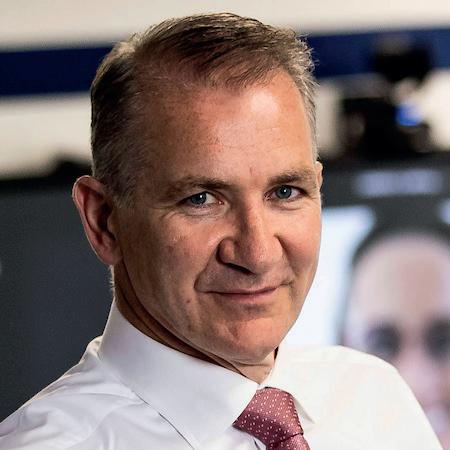
Committed to focusing on engagement opportunities
No two colleagues will have the same attitude, physical or emotional strength, self-discipline or motivation. Not everyone needs the same help at the same time, which is why we ensure leaders at every level keep wellbeing on the agenda and emphasise its importance to all colleagues at every opportunity. Our senior leaders are committed to driving the wellbeing agenda and demonstrate their commitment by:
• Leading by example through their team commitments charter, ensuring leaders include a focus on work-life balance and promote the right to disconnect.
• Openly discussing their own physical and mental health challenges at events, supporting mental health training and encouraging management teams to support initiatives.
• Including wellbeing on regular team/one-to-one agendas — and asking People Managers to do the same
Flexible working options
Our ‘Smart and Flexible Working Framework’ was launched in conjunction with our Diversity & Inclusion strategy in 2018. Since then, the promotion of flexible working, such as reduced hours, home working and compressed hours has supported enhanced flexibility and work-life balance for all colleagues. It is aimed at attracting and retaining diverse talent across functions and levels. Currently, 52% of colleagues are availing of flexible working options, including men and women in leadership positions who embrace the opportunities provided, allowing colleagues to see how flexibility and a successful career within Permanent TSB can align.
Parental support
We have created a package of external support services through engagement with three service providers. It helps them navigate different stages in their journey through parenthood, ensuring they can meaningfully contribute to our ambition. These include:
• Career coach: New parents and soon-to-be parents have access to a career coach who can support them to articulate their career goals and/ or concerns and formulate an action plan for a pathway forward.
• Parents coach (under 5yrs): A coach for parents/ carers of toddlers and young children whose aim is to equip and empower parents to promote optimal speech, language, communication and social-emotional early milestone development.
• Parents coach (5–17yrs): A coach for parents/ carers of 5 to 17-year-olds, supported by training, e-learning and workshops for parents and children. It is focused on promoting healthy conversations about friendships, relationships, sexuality, physical development, feelings and communication.
Acknowledge constant change
Karen Hackett, Head of People Experience maintains focusing on the moments that matter for our colleagues at every stage of their lives is a key consideration in maintaining wellbeing. Wellbeing isn’t about having a menu of random supports that could be interpreted as a ‘tick box’ approach. Rather, it is about co-creating and adopting meaningful colleague-centred support that we are committed to evolving continuously.
We have several standout benefits that support wellbeing. By enhancing financial support in terms of pension contribution, wellbeing days, medical screening, EAP services, extended full-pay maternity leave and life events leave such as menopause. With these options, colleagues see flexible working and parental support as key differentiators in what we offer.

Permanent TSB is committed to supporting colleagues’ financial, physical and emotional wellbeing, helping colleagues switch off, participate in their community and achieve a sense of purpose in their professional lives.
For more on our wellbeing offerings and Flexible Working Support, please visit our blog at permanenttsb.ie/blog/wellbeing-and-livewell/
MEDIAPLANET READ MORE AT BUSINESSNEWS.IE 13 AN INDEPENDENT SUPPLEMENT FROM MEDIAPLANET WHO TAKE SOLE RESPONSIBILITY FOR ITS CONTENT
Paid for by Permanent TSB
Karen Hackett Head of People Experience, Permanent TSB
Ger Mitchell CHRO and Corporate Development Director, Permanent TSB
Create a space for yourself to feel how you want to feel and to react with self-compassion and purpose.
~Carmen Bryce, Communications and Fundraising Manager, Mental Health Ireland

14 READ MORE AT BUSINESSNEWS.IE AN INDEPENDENT SUPPLEMENT FROM MEDIAPLANET WHO TAKE SOLE RESPONSIBILITY FOR ITS CONTENT MEDIAPLANET
Realising the many ways to support the wellbeing of a workforce
Offering a range of support, education and resources can impact employee wellbeing. Extending that beyond the workforce to families in areas such as counselling and financial advice can also have a positive effect. Additionally, wellbeing projects can be extended into wider communities with green initiatives that benefit local neighbourhoods and the environment.
Mental health
HR representative Clare Cahill says the employee wellbeing emphasis had shifted in recent years from physical health to more towards mental health. “The focus is now more on a healthy mind, particularly with Covid-19 and the fact that people’s mental health had taken a knock,” says Cahill. That has also seen the planned introduction of mental health first aid training within the organisation for 2023 as well as PSA testing for men to screen for prostate cancer.

Healthy living
Globally, PepsiCo has a centre of excellence under its Total Rewards department called Healthy Living, which has three pillars: Be Well, Find Balance and Get Involved. In Ireland, it is being applied as the ‘HowAREyouDoing?’ programme, with speakers offering advice on eating well, sleeping well, areas of addiction and mindfulness and setting priorities — with up to 500 employees participating.
An Employee Assistance Programme (EAP) offers free, in-depth assistance or counselling; a designated ‘Benefits Month’ for one-to-one sessions with health insurance and pension providers; engagement with a cycle-to-work vendor; and the ‘Work that Works’ flexible working concept, featuring social events.
Inclusion networks and groups
Brian Colgan, who is Little Island Plant Director, explains how the company has evolved the DE&I (Diversity, Equity and Inclusion) agenda to drive an inclusive leadership and culture and elevate the representation of women through the Women’s Inclusion Network (WIN) ERG. This is alongside the activities of the other ERGs representing minority groups such as Equal (LGBTQIA) and Enable (representing all abilities).
“We have active teams focusing on awareness campaigns to promote these activities,” says Colgan, who is WIN co-chair. He explains that they build on inclusive leadership and unconscious bias training and ‘A Space to be You’ awareness, as well as encouraging allyship in the workplace.
“We aim to ensure that our environment encourages people to be themselves and create that sense of belonging where different perspectives are embraced,” continues Colgan. “It’s clear that when marginalised group members have coworker allies, they have increased job satisfaction, lower anxiety and a stronger workplace commitment.”
Raise awareness
With men actively part of WIN, Colgan says male members are engaged in dialogue to raise awareness and “commit to advocacy and model the behaviours we wish to see in others.”
WIN is also focused on attracting, appreciating and accelerating women’s representation — with an overlap and synergy with STEM groups such as Million Women Mentors and iWISH to ensure early engagement for prospective female employees in the STEM arena.
Sustainability teams
A major part of the employee wellbeing initiatives is PepsiCo Positive — with sustainability and green teams, community partnerships and CSR (corporate social responsibility) elements.

Bernadette Leyden, who is EHS (environmental health and safety) Manager at the Little Island Plant, says: “We have very active teams, with sustainability at the centre of everything we do to have a positive impact on our people and planet.”
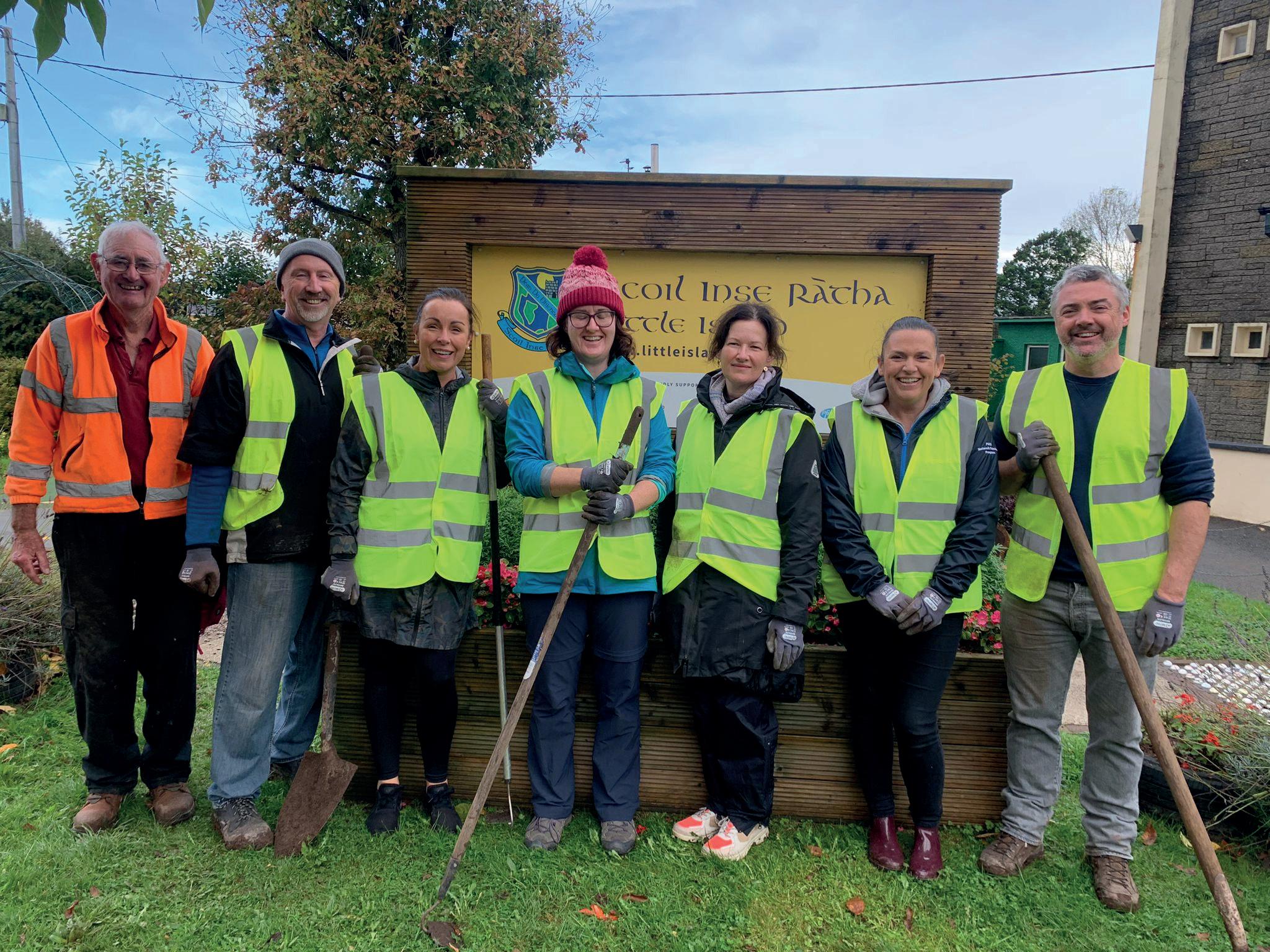
The ‘Green Team’ works under the headings of education, workplace and community. Education features in-house campaigns on issues such as water conservation, solar panels and energy efficiency — while recycling is a priority in the workplace. Further initiatives include plant and seed days to encourage the home growing of flowers and vegetables, community beach cleans and participation in ‘Tidy Towns’ initiatives.

MEDIAPLANET READ MORE AT BUSINESSNEWS.IE 15 AN INDEPENDENT SUPPLEMENT FROM MEDIAPLANET WHO TAKE SOLE RESPONSIBILITY FOR ITS CONTENT
out more at
Clare Cahill HR Representative, PepsiCo Ireland
Find
pepsicojobs. com/main/com
Paid for by PepsiCo
Bernadette Leyden EHS Manager, Little Island, PepsiCo Ireland
Brian Colgan Plant Director, Little Island, PepsiCo Ireland
WRITTEN BY Mark Nicholls
Companies are increasingly recognising the value of employee wellbeing initiatives to support the workforce and their families.
We have very active teams, with sustainability at the centre of everything we do to have a positive impact on our people and planet
Image provided by PepsiCo
How to revamp your business’ family leave benefits for inclusivity
Many companies are talking about boosting employee support — but some are doing more than others. Potential employees should check what individual employers offer. What are the most forward-looking employers offering today?
Family support for all Nikki Flanders, Managing Director of Energy Customer Solutions at energy company SSE says: “We enhanced our family leave policies in October 2022 to support employees throughout the journey to becoming a parent and beyond — whatever their gender, gender identity, sexual orientation or family status.”
“All prospective and new parents face challenges in balancing parenthood and their careers, so it’s important for us to support our people on this journey.” The company’s enhanced family leave offerings now include a range of benefits.

Partner’s leave
This offers an additional seven weeks’ paid leave for partners of parents who take maternity or adoption leave. Together with paternity leave, this gives partners nine weeks of paid leave.
Fertility treatment leave
Employees are now entitled to:
• Two weeks of leave at full pay every 12 months if they are undergoing an assisted conception procedure.
• Two days of leave at full pay every 12 months if they don’t qualify
for the two weeks’ leave but their partner — or a surrogate birth parent who is helping them to have a baby — is undergoing an assisted conception procedure.
Flanders says: “Starting a family through fertility treatment can be a long and difficult process. The procedures or medication can make you feel unwell, and there’s the emotional impact. I’m delighted that we’re now supporting employees through this.”
Pregnancy loss leave
“Pregnancy loss is a difficult and painful experience and more common than people may think,” says Flanders. “Employees who suffer a pregnancy loss, including partners and those having a baby through a surrogacy arrangement, can now avail of two weeks of leave at full pay and access to counselling services.”
Supportive management
Management support is essential for policies like these, says Flanders. “Compassion, confidentiality and understanding are key. All our managers know about these policies and are ready to support their teams.”
What employees think “Employees have told us that this is a step forward in tackling gender role stereotypes and reflects today’s society,” says Flanders. “These are personal issues that people may not always be comfortable sharing, but I’m heartened by the open conversations that have been taking place around this.”
The energy company has found its existing employee voice channels
valuable in understanding how to support employees through pregnancy loss and fertility treatment. Flanders says: “Some of our ‘Belonging at SSE’ groups such as ‘Working Parents’ and ‘Health and Wellbeing’ have been a fantastic source of feedback.”
“Why have we increased employee benefits around this? It’s the right thing to do, and it shows we are here for employees during painful, as well as good, times,” says Flanders. “Our people are at the heart of our business. An inclusive culture is as much about how we all act — as the policies we have in place. These new and enhanced policies are another step in the right direction.”
Other employee wellbeing initiatives
The company sees safety as its number one value, and employee wellbeing is central to that. It offers employee assistance programmes, financial planning assistance and wellbeing events and festival weeks focusing on mental health, wellbeing and benefits available to employees.
There are also ‘Belonging Groups,’ set up by employees, which encourages the company to make positive change. The groups cover gender balance, health and wellbeing, menopause, disability, neurodiversity and chronic health issues.
“I’m a member of the SSE Menopause Community and the support that we offer each other is just brilliant,” Flanders says.

“There’s a strong and genuine focus on inclusion and wellbeing at our company. It’s not just about policies. We are always looking at practical ways to improve employee support.”

16 READ MORE AT BUSINESSNEWS.IE AN INDEPENDENT SUPPLEMENT FROM MEDIAPLANET WHO TAKE SOLE RESPONSIBILITY FOR ITS CONTENT MEDIAPLANET
Find out more at sseairtricity.com/ careers/
WRITTEN BY Linda Whitney
Nikki Flanders, Managing Director of Energy Customer Solutions, SSE
Extending family leave policies to include fertility treatment and pregnancy loss is welcomed as another step forward by employees.
Paid for by SSE Airtricity
It’s the right thing to do, and it shows we are here for employees during painful, as well as good times.





 Sustainability
Sustainability





































